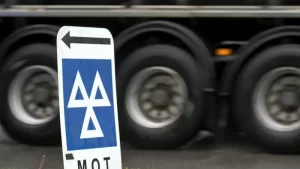Seven Automakers Team Up to Establish Vast New EV Charging Network

Seven major automakers are combining forces to create a network of 30,000 new EV fast-charging stations across North America. The joint venture between BMW, General Motors, Honda, Hyundai, Kia, Mercedes-Benz, and Stellantis is aiming to open the first chargers in the U.S. in summer 2024, with chargers in Canada to follow.
These chargers will be compatible with electric vehicles that use both the Combined Charging System (CCS) and Tesla’s proprietary North American Charging Standard (NACS) connectors. Many automakers have already pledged to adopt these NACS connectors in the near future, including Mercedes-Benz and GM, who are part of this joint venture. Other charging networks such as the Volkswagen Group’s Electrify America subsidiary and ChargePoint have also said they would adopt NACS in the near future.
We don’t yet know what the joint venture will be called or when the network of 30,000 chargers will be completed. The automakers do claim that the stations will be in urban areas and along highways, and that each station will have multiple DC fast-charging connectors. Some locations will be designated as “flagship stations” and will provide “additional amenities.” The automakers say that the charging network will integrate with the various manufacturer’s apps and navigation functions, allowing for route planning, integrated payment functions, and even charging reservations.
Senior Editor
Despite being raised on a steady diet of base-model Hondas and Toyotas—or perhaps because of it—Joey Capparella nonetheless cultivated an obsession for the automotive industry throughout his childhood in Nashville, Tennessee. He found a way to write about cars for the school newspaper during his college years at Rice University, which eventually led him to move to Ann Arbor, Michigan, for his first professional auto-writing gig at Automobile Magazine. He has been part of the Car and Driver team since 2016 and now lives in New York City.



